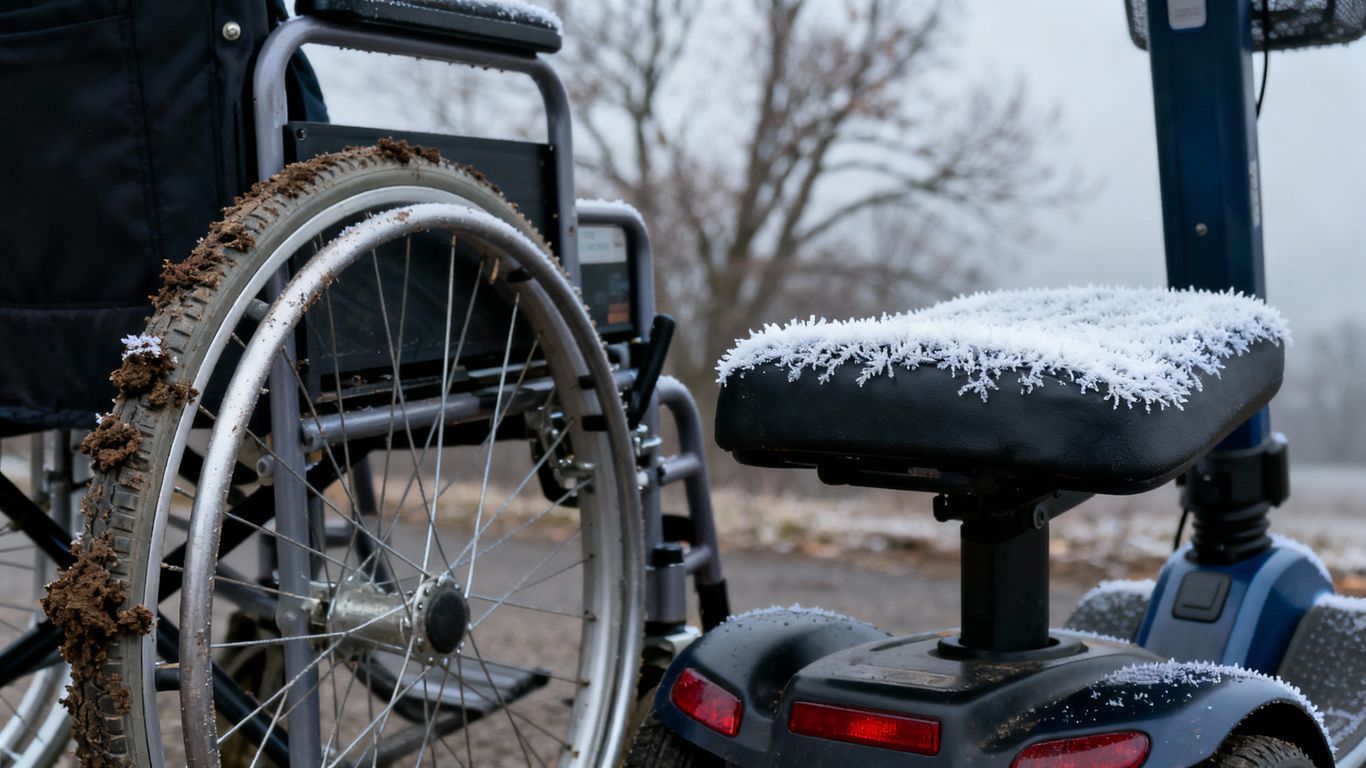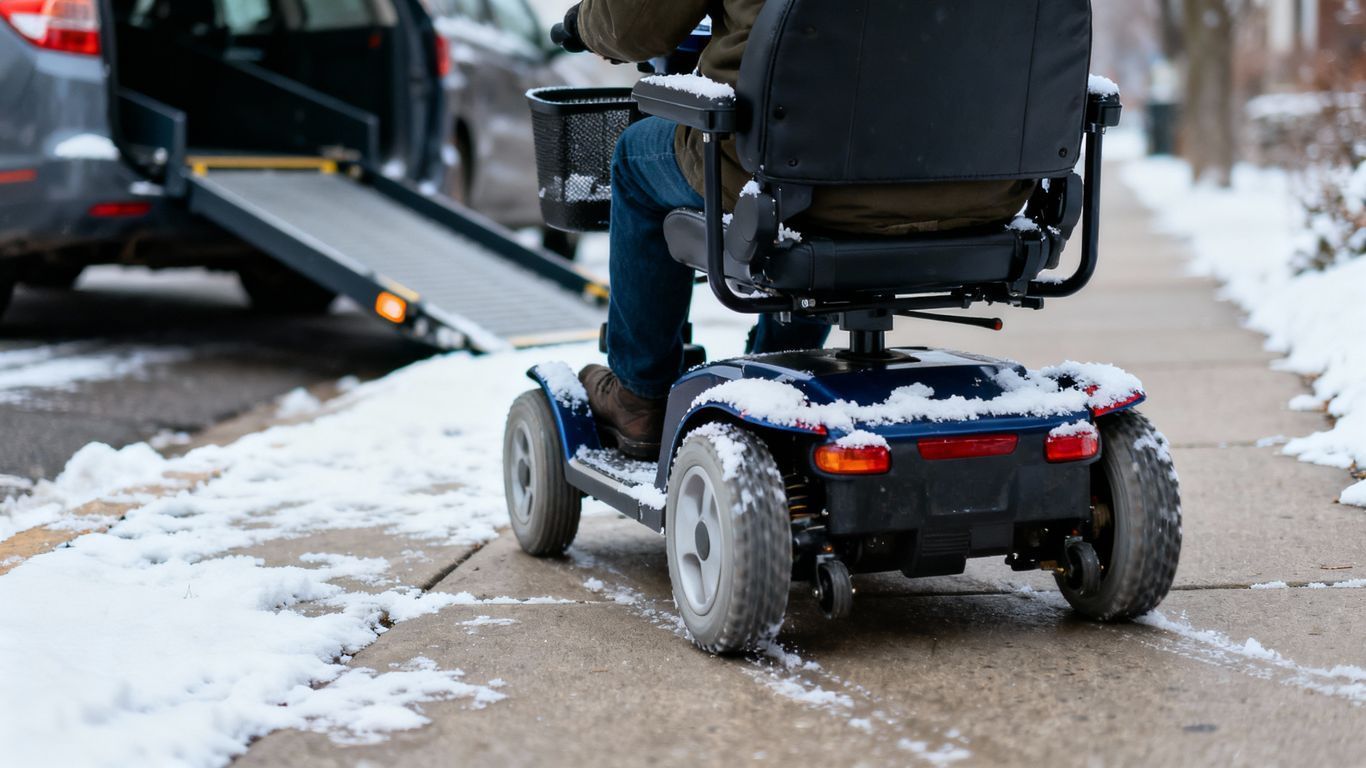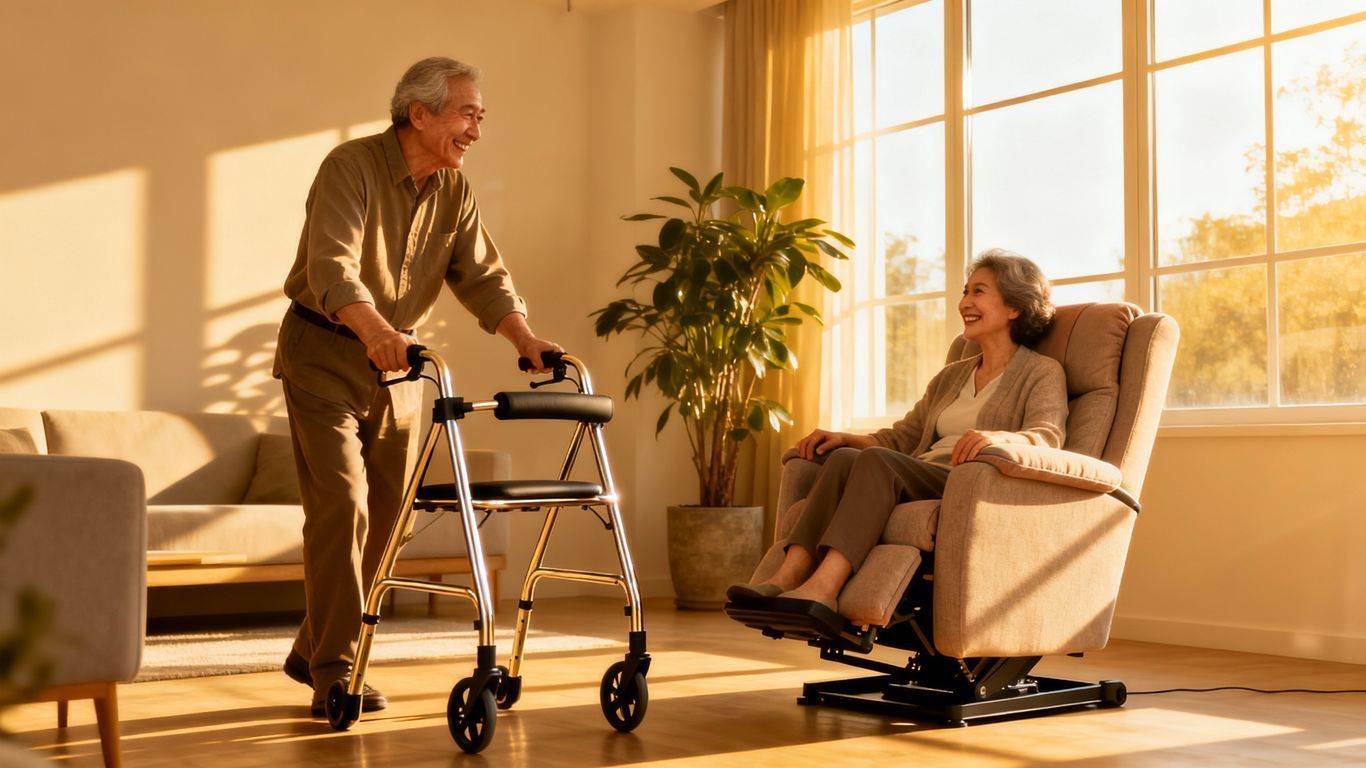Does Medicare Cover Mobility Vans and Equipment in Georgia or Tennessee?
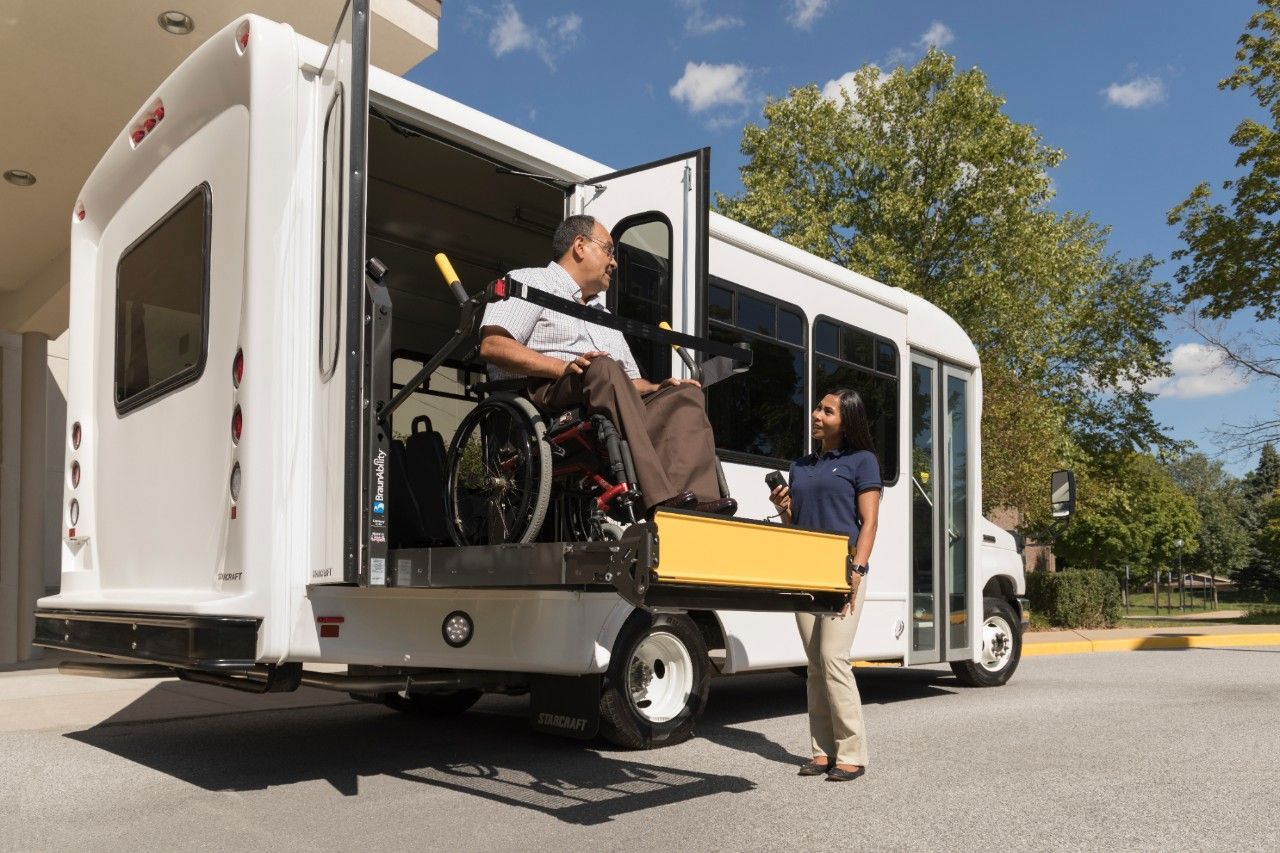
Getting around can be tough when you have mobility issues. Many people wonder if Medicare helps pay for things like scooters, wheelchair securements, or even special vans. This article looks into Medicare mobility coverage GA TN, covering what might be covered and how to figure it all out in Georgia and Tennessee.
Key Takeaways
- Medicare generally covers certain mobility equipment when medically necessary, but not typically entire mobility vans.
- Items like mobility scooters and wheelchair securement devices can be covered if they meet Medicare's criteria.
- A doctor's prescription is usually required for Medicare to cover any mobility aids.
- Medicare Advantage plans in Georgia and Tennessee might offer additional benefits for mobility equipment or services.
- It's important to check with your specific Medicare plan and local providers to understand coverage details and find solutions.
Understanding Medicare Mobility Coverage in GA and TN
When you're looking into how Medicare helps with mobility needs in Georgia and Tennessee, it's important to know what's generally covered and what might be a bit trickier. Medicare's primary focus is on medical care, and that extends to equipment that helps you manage health conditions.
Medicare Coverage for Mobility Equipment
Medicare Part B covers a lot of durable medical equipment (DME) that doctors prescribe for use in your home. This can include things like walkers, crutches, and even some types of wheelchairs. The key here is that the equipment must be medically necessary for your condition.
Does Medicare Cover Mobility Vans in Georgia?
Generally, Medicare doesn't pay for the purchase of a whole vehicle, including mobility vans, even in Georgia. They might cover modifications to a vehicle if it's deemed medically necessary for you to get to medical appointments, but this is rare and usually involves specific types of equipment like wheelchair lifts.
Does Medicare Cover Mobility Vans in Tennessee?
Similar to Georgia, Medicare's coverage for mobility vans in Tennessee follows the same rules. They typically won't cover the cost of the van itself. However, they might cover certain accessories or modifications that are medically necessary for transporting essential medical equipment, but this is not a common benefit for entire vehicles.
Types of Mobility Equipment Covered by Medicare
Medicare's coverage for mobility equipment is pretty specific. It generally falls under Durable Medical Equipment (DME), and there are rules about what's covered and why.
Coverage for Mobility Scooters
Medicare Part B covers power mobility devices, which includes scooters, if you have a mobility limitation that prevents you from doing daily activities in your home. You'll need to meet certain conditions, and the scooter must be prescribed by your doctor. It's not just about wanting one; it's about medical necessity.
Coverage for Wheelchair Securements
When it comes to wheelchairs, Medicare might cover securement systems if you use a wheelchair that is transported in a vehicle. These systems are important for safety, making sure the wheelchair stays put during travel. Think of them as safety belts for your mobility device.
Coverage for Vehicle Lifts
Medicare generally does not cover vehicle lifts for transporting mobility devices like wheelchairs or scooters. These are typically considered vehicle modifications or accessories, which fall outside of what Medicare covers. You might need to look into other programs or private pay options for these.
It's important to remember that Medicare coverage is always based on medical necessity. Your doctor plays a big role in this process by providing the necessary documentation and prescriptions. Without that, getting coverage for any mobility aid can be tough.
Here's a quick rundown of what to keep in mind:
- Doctor's Prescription: Always get a prescription from your doctor. This is step one.
- Medical Necessity: The equipment must be medically necessary for your condition.
- DME Supplier: You'll usually get the equipment from a Medicare-approved DME supplier. You can find a list of approved DME suppliers through Medicare or your local provider.
- Coverage Limits: Understand that there might be limits on the type or quantity of equipment covered.
Navigating Medicare Coverage for Mobility Aids
Getting the right mobility equipment through Medicare can feel like a puzzle. It's not always straightforward, and understanding the process is key to getting the help you need. Medicare generally covers mobility aids that are considered Durable Medical Equipment (DME). This means items that have a long lifespan and are medically necessary for your condition.
Eligibility Requirements for Medicare Mobility Coverage
To qualify for Medicare coverage for mobility aids, you typically need to meet a few conditions. First, you must have Original Medicare (Part B). Second, the equipment must be prescribed by a doctor who accepts Medicare. Third, the equipment needs to be medically necessary for your health condition. This usually means you have a condition that limits your ability to move around, and the equipment will help you function better at home.
The Role of Durable Medical Equipment (DME)
Durable Medical Equipment, or DME, is the category most mobility aids fall under with Medicare. Think of things like wheelchairs, walkers, and mobility scooters. These are items that your doctor prescribes to help you with your health condition. It's important to get your DME from a Medicare-enrolled supplier. This helps ensure the equipment meets Medicare's standards and that you'll be covered correctly. For example, if you need mobility scooters in Chattanooga, you'll want to make sure the provider is a Medicare-enrolled supplier.
Getting a Prescription for Mobility Aids
A prescription from your doctor is a non-negotiable first step. Your doctor needs to document why the mobility aid is medically necessary for your specific situation. This documentation is what Medicare reviews to approve coverage. Make sure your doctor is thorough in their notes. They should explain how the equipment will improve your health or help you perform daily activities. Without a proper prescription and medical justification, Medicare is unlikely to cover the cost of the equipment.
The process often involves a bit of paperwork and communication between your doctor, the equipment supplier, and Medicare. It's a good idea to keep copies of all your documents and to follow up regularly to check the status of your claim.
Medicare Advantage Plans and Mobility Coverage
When you have Medicare Advantage, you might find extra benefits for mobility needs that Original Medicare doesn't typically cover. These plans, often called Part C, are offered by private companies approved by Medicare. They can bundle hospital coverage (Part A) and medical coverage (Part B) into one plan, and many include extras.
Think of it like this: Original Medicare sets a baseline, but Medicare Advantage plans can go above and beyond. This often means they might offer coverage for things like:
- Routine dental, vision, and hearing care.
- Gym memberships or fitness programs.
- Transportation to medical appointments.
And importantly for our discussion, some plans may provide additional coverage or allowances for mobility equipment or services that aren't standard under Original Medicare. It's not a guarantee, but it's definitely something to look into.
It's really about comparing what each plan offers. Don't just assume all Medicare Advantage plans are the same. They can vary quite a bit, especially when it comes to these extra benefits. You'll want to check the plan's specific details, like their Summary of Benefits, to see what's included.
Exploring these options can be a smart move if you're looking for more support with your mobility.
Finding Mobility Solutions in Georgia and Tennessee
Finding the right mobility solutions in Georgia and Tennessee involves connecting with specialized providers who understand your needs and Medicare's coverage rules. It's not always straightforward, but there are resources available to help you get the equipment and support you require.
Local Mobility Providers in Georgia
When looking for mobility equipment in Georgia, it's best to find local dealers who are familiar with the state's specific regulations and Medicare guidelines. These providers often carry a range of products, from scooters and wheelchairs to vehicle lifts and van conversions. They can also be a great resource for understanding what Medicare might cover and helping you with the necessary paperwork. Many of these businesses focus on providing personalized service, which is really important when you're dealing with something as personal as mobility assistance. You can often find them by searching online for "mobility equipment Georgia" or "wheelchair vans Georgia."
Local Mobility Providers in Tennessee
Similarly, in Tennessee, you'll want to seek out local suppliers who specialize in mobility aids. These companies can offer expert advice on selecting the right equipment, whether it's a mobility scooter for getting around town or a specialized lift for your vehicle. They are usually knowledgeable about the Medicare approval process and can guide you through getting the necessary prescriptions and documentation. Building a relationship with a local provider can make the entire process much smoother. Look for businesses advertising "mobility scooters Chattanooga" or "accessible vans Tennessee" to start your search.
Resources for Mobility Assistance
Beyond local dealers, several other resources can help you find mobility solutions. State agencies on aging and disability services in both Georgia and Tennessee often have lists of approved providers and information on available programs. Non-profit organizations focused on specific conditions, like arthritis or paralysis, can also offer guidance and support. Don't forget to check with your doctor or a physical therapist, as they can often recommend reputable providers and help document your medical need for specific equipment. Getting the right mobility aid can significantly improve your quality of life.
It's important to do your homework when selecting a mobility provider. Ask about their experience with Medicare, read reviews if available, and make sure they offer reliable service and support after the sale. A good provider will be transparent about costs and coverage.
Key Considerations for Medicare Mobility Coverage GA TN
Getting Medicare to cover mobility equipment and especially vans can feel like a puzzle. It's not always straightforward, and there are definitely some things you need to keep in mind to make sure you're getting the most out of your benefits.
Understanding Coverage Limitations
Medicare generally covers durable medical equipment (DME) that's medically necessary for your health condition. This usually includes things like wheelchairs and scooters. However, it's important to know that Medicare typically doesn't cover entire vehicles or the cost of converting a van into a mobility van. They might cover specific parts or accessories needed to make a vehicle accessible, like certain types of lifts, but the van itself is usually out of pocket. Always check the specifics for your plan.
Appealing Medicare Coverage Decisions
If Medicare denies coverage for something you believe should be covered, don't just give up. There's an appeals process. You'll need to gather all your documentation, including the doctor's prescription and any letters of medical necessity.
Here's a general idea of the steps:
- Get a Denial Letter: Make sure you have the official denial in writing from Medicare.
- Gather Your Evidence: Collect all relevant medical records, doctor's notes, and supplier information.
- Submit an Appeal: Follow the instructions on the denial letter to file your appeal within the specified timeframe.
- Follow Up: Keep track of your appeal's progress and respond to any requests for more information.
It can be a bit of a process, but it's worth it if you need the equipment.
Maximizing Your Medicare Benefits for Mobility
To make sure you're getting everything you can, it's smart to be proactive.
- Talk to your doctor early about your mobility needs and get a clear prescription.
- Work with Medicare-approved suppliers who understand the paperwork.
- Understand what your specific Medicare plan (Original Medicare or Medicare Advantage) covers, as benefits can differ.
Knowing these details upfront can save you a lot of headaches down the road.
Thinking about how Medicare helps with mobility gear in Georgia and Tennessee? It can be a bit tricky to figure out what's covered. We've broken down the important things you need to know to make it easier. Want to learn more about your options and get personalized help? Visit our website today to explore how we can assist you!
Wrapping Up: Medicare and Mobility Aids in GA & TN
So, after looking into it, Medicare's coverage for mobility vans and related equipment in Georgia and Tennessee isn't a simple yes or no. It really depends on the specific item and whether it's deemed medically necessary for your situation. While Medicare Part B might cover certain mobility devices like wheelchairs or scooters if they're prescribed by a doctor and used in your home, full van conversions or specialized lifts are usually a different story. These tend to fall outside standard coverage. It’s always best to talk directly with Medicare or a local provider who understands these programs. They can help you figure out what might be covered and guide you through the paperwork. Don't forget to check with your specific Medicare Advantage plan too, as they sometimes offer different benefits.
Frequently Asked Questions
Does Medicare cover mobility equipment like wheelchairs or scooters in Georgia and Tennessee?
Medicare generally helps pay for mobility equipment that is considered Durable Medical Equipment (DME). This includes things like wheelchairs and scooters, but typically does not cover entire mobility vans. However, Medicare might help pay for specific equipment that can be installed in a van, such as wheelchair securement systems or vehicle lifts, if they are medically necessary.
Will Medicare pay for a whole mobility van in Georgia or Tennessee?
No, Medicare usually doesn't pay for the whole mobility van itself. Its coverage is focused on necessary medical equipment. While a van is a big purchase, Medicare might cover parts or modifications that help you use your wheelchair or scooter safely in a vehicle, like lifts or tie-downs.
What do I need to do to get Medicare to cover my mobility equipment?
To get Medicare to cover mobility equipment, you'll need a doctor's order stating that the equipment is medically necessary for you. This means your doctor must explain why you need it to help with a health condition or disability. You'll also need to get the equipment from a supplier approved by Medicare.
How do Medicare Advantage plans in Georgia and Tennessee affect mobility coverage?
Medicare Advantage plans, also known as Medicare Part C, are offered by private companies. These plans often provide extra benefits beyond Original Medicare. Some Medicare Advantage plans might offer more coverage for mobility equipment or related services, or they could have different rules for what's covered. It's a good idea to check the specific plan's benefits.
What specific types of mobility equipment does Medicare typically cover?
Medicare covers certain types of mobility aids that are considered Durable Medical Equipment (DME). This can include mobility scooters and wheelchairs. It may also cover items like wheelchair securements (to safely strap a wheelchair into a vehicle) and vehicle lifts if your doctor says they are necessary for your health.
What are some important things to know about Medicare's coverage limits for mobility items?
Coverage limits can vary. Medicare usually covers equipment that is medically necessary and prescribed by your doctor. It might not cover upgrades or features that aren't essential for your medical needs. If Medicare denies coverage for something, you have the right to appeal the decision. Understanding these limits helps you make the most of your benefits.
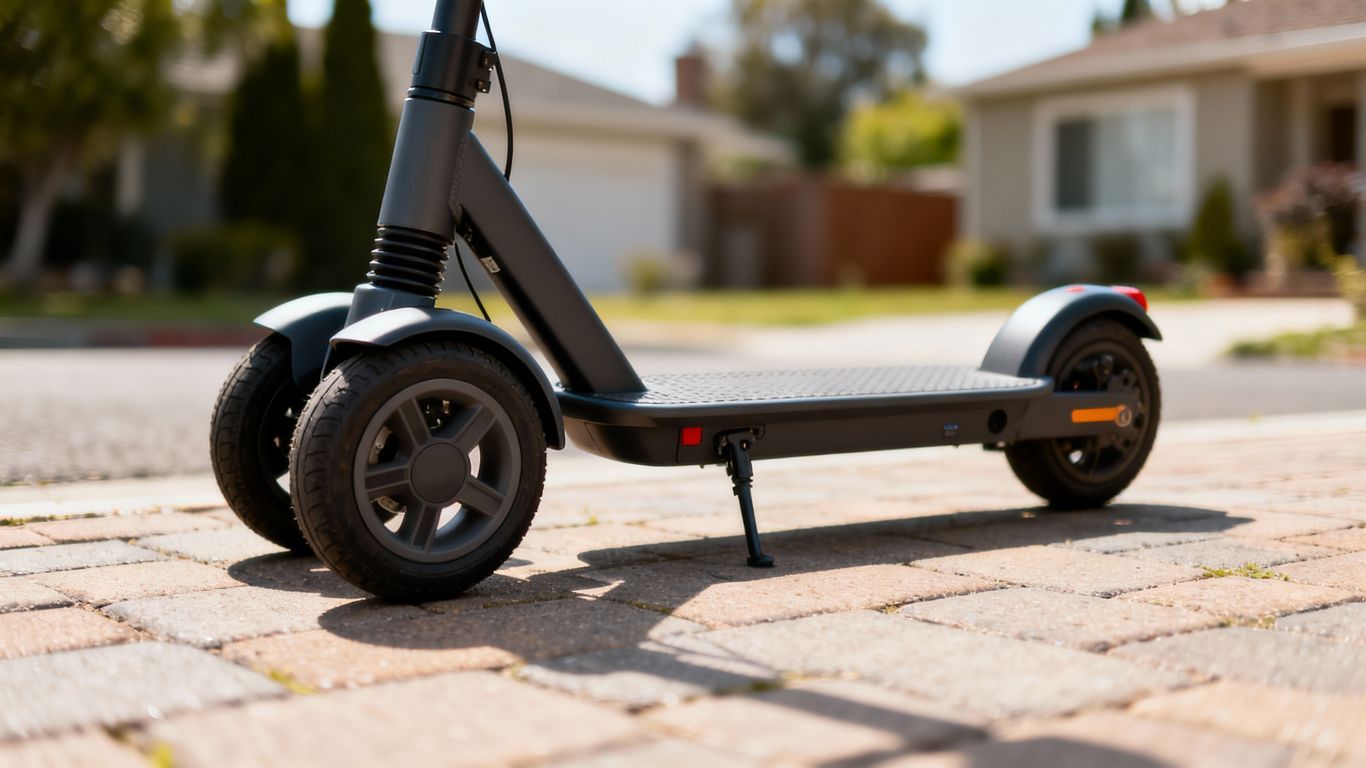
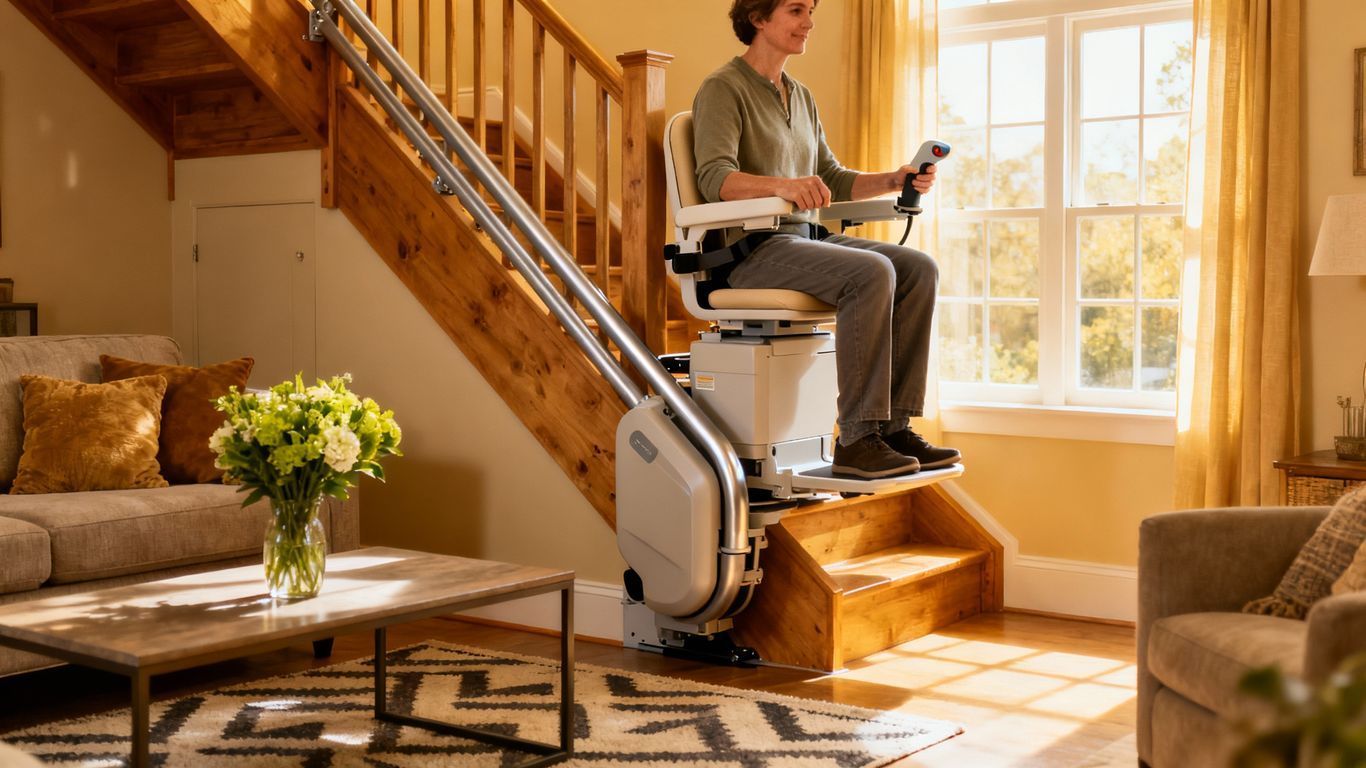
Why February Is the Perfect Time for Stair Lift & Home Accessibility Upgrades in Calhoun & LaFayette


